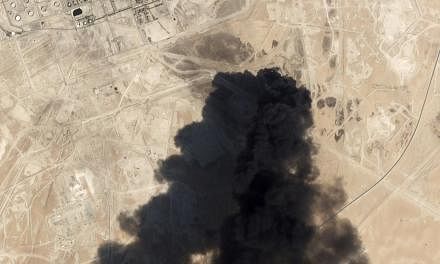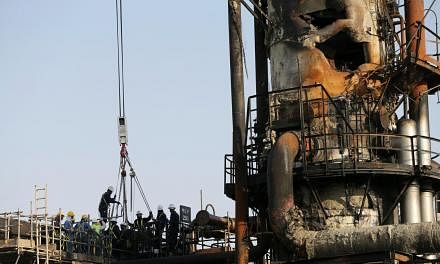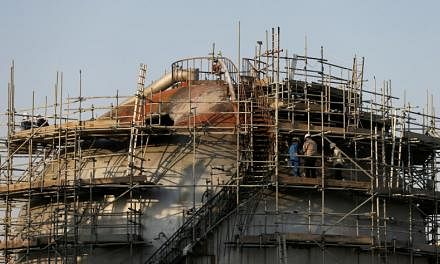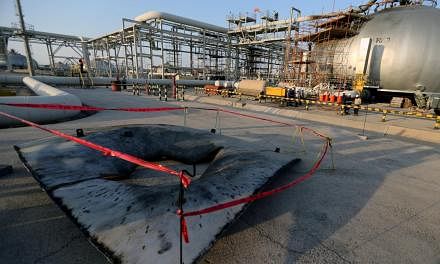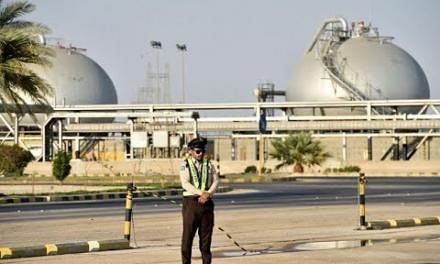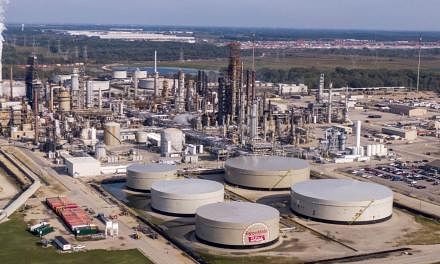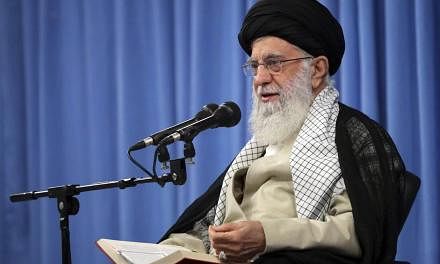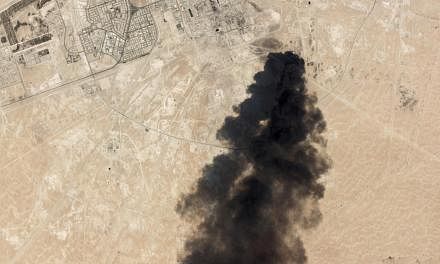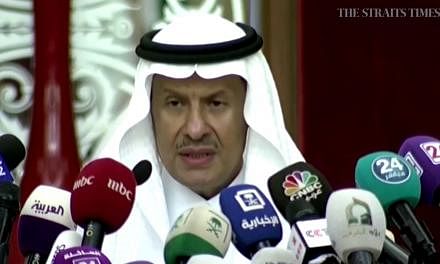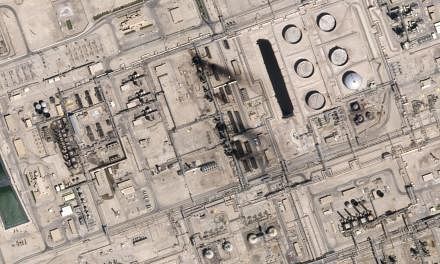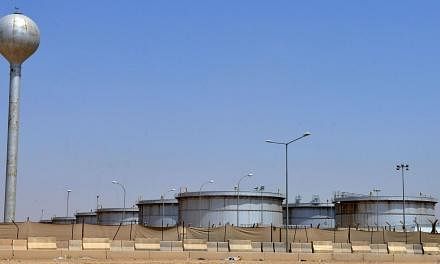CAIRO (DPA) - US Secretary of State Mike Pompeo said on Wednesday (Sept 18) that attacks on Saudi oil facilities at the weekend were an Iranian "act of war" and called the Houthi's claim of responsibility "fradulent".
"We were blessed that there were no Americans killed in this attack, but any time you have an act of war of this nature, there's always risk that that could happen," he said before arriving in Saudi Arabia.
Pompeo added that the US intelligence community has "high confidence" the Houthis do not possess the weapons used in the attack.
"We've seen no evidence that it came from Iraq. It could have well have travelled over Kuwait, we've not seen that," Pompeo added.
Saudi Arabia is leading an alliance of Arab nations fighting against Houthi rebels in Yemen, who are supported by Iran.
Later, in a statement on his official Twitter account on Thursday (Sept 19), Pompeo said in a meeting with Crown Prince Mohammed bin Salman the United States supports Saudi Arabia's "right to defend itself" and said Iran's behaviour would "not be tolerated" .
Pompeo condemned the attacks and supported Saudi Arabia's call for international experts to come to the country to further investigate, Saudi Arabia's state news agency SPA said in a separate report on the meeting.
In the meeting, Prince Mohammed stressed that the attacks on state oil company Saudi Aramco were aimed at destabilising the region's security and damaging the global energy supply and economy, SPA reported.
Tensions mounted in the oil-rich region after drone attacks, repeatedly claimed by the Houthis, struck major Saudi oil facilities operated by Aramco at the weekend.
Ahead of Pompeo's arrival, Saudi Arabia also said the attacks did not originate from Yemen and were "unquestionably sponsored by Iran."
"The Iranian regime attacked the facilities with 18 drones and seven cruise missiles, including three that landed short and did not reach their final destination," Turki al-Malki, the spokesman for the Saudi-led coalition fighting the Iran-backed Houthi rebels in Yemen, told a press conference.
He said that the range of the cruise missiles was 700 kilometres, which means that they could not have been fired from inside Yemen, and that they were launched from the north towards the south. Iraq and Iran are to the north of the kingdom.
At the presser, al-Malki displayed remains of the alleged Iranian cruise missiles and drones used in the attack.
He added that "the findings of the investigations show the attack was systematically and intentionally planned to destroy civilian infrastructure." Riyadh and Washington have repeatedly blamed the attack on Iran, a regional rival of Saudi Arabia, though Tehran has denied the charge.
Iran renewed its denial of involvement in the attack in an official letter to the US, the Iranian news agency IRNA reported on Wednesday.
"Iran has nothing to do with the attack," states the letter, which was delivered to the US via the Swiss embassy in Tehran. Switzerland represents Washington's diplomatic interests in Iran.
"If action is taken against Iran, we will promptly retaliate and the dimensions would not be limited," Teheran wrote in the letter, according to parts of it published by IRNA.
The letter was delivered to the Swiss embassy on Monday, according to the agency.
Earlier on Wednesday, Saudi Arabia said it would join a US-led international maritime safety coalition in the Gulf in the wake of the attack.
The Saudi state news agency SPA, citing an unnamed Defence Ministry official, reported that the alliance would cover the vital waterways of the Strait of Hormuz, Bab al-Mandab, the Sea of Oman and the Gulf.
Prince Mohammed called the attack a "real test to the international community's will in confronting subversive acts threatening international security and stability," in a telephone call with South Korean President Moon Jae In, according to SPA.
French President Emmanuel Macron also spoke with Prince Mohammed by telephone on Wednesday and agreed to send French experts to Saudi Arabia to help investigate the cause of the attacks, according to a statement from the Elysee Palace.
The United Nations said Wednesday that it is also sending a team of experts to look into the incident. UN Secretary-General Antonio Guterres said in New York that the team was already on its way.
Saudi Arabia is the world's top oil exporter.
The attacks will not affect the kingdom's oil revenues, Saudi Finance Minister Mohammed al-Jadaan said on Wednesday.
"These attacks have no impact on the financial and economic aspects," the official added on the sidelines of an economic forum in Riyadh.
On Tuesday, Saudi Energy Minister Abdulaziz bin Salman said half of the crude oil output that was disrupted due to the Aramco attack had been restored.
He expected that the monarchy's production capacity will return to 11 million barrels per day by the end of September. The Houthi rebels, who claimed responsibility for the attacks on Aramco, on Wednesday threatened to attack the United Arab Emirates.
"We have scores of targets in the United Arab Emirates, including in Abu Dhabi and Dubai, and they could be hit at any time," said Houthi spokesman Yahia Sarie.
The UAE is a main partner in the Saudi-led coalition in Yemen.
